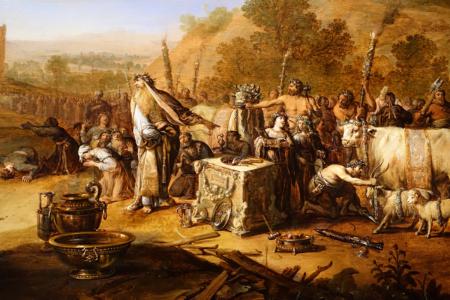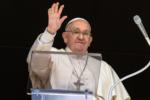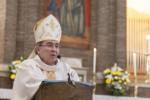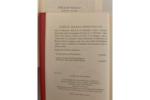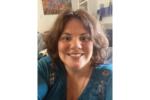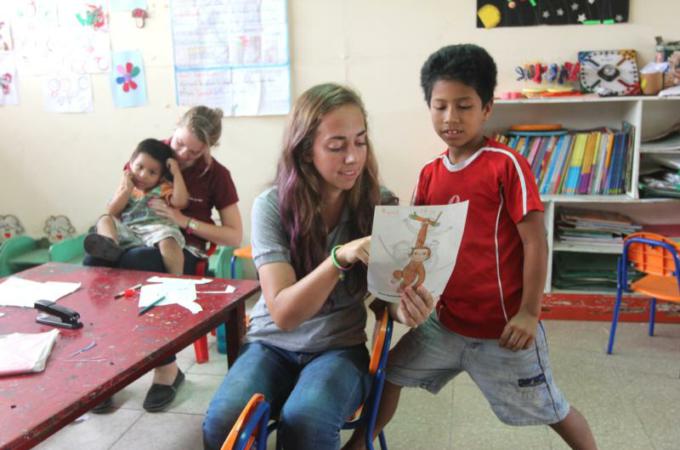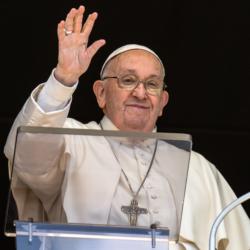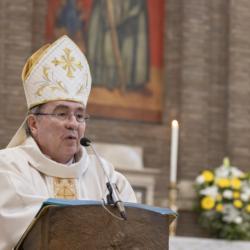Young Americans find spiritual, pastoral journey to peripheries in Ecuador
GUAYAQUIL, Ecuador (CNS) -- Half a dozen recent college graduates had just moved into the simple house on a rutted road at the edge of the city and were puzzling over the dinner menu. Would the shop down the street have vegetarian tomato sauce? And what do you call tomato sauce in Spanish?
At the kitchen counter, Meghan Dietzler was mixing batter for banana bread, a farewell gift to a neighbor. She was saying her goodbyes after a year with Rostro de Cristo (the Face of Christ), a volunteer program that sends young people on a spiritual and pastoral journey to what Pope Francis calls "the periphery."
After graduating from The Catholic University, Washington, with degrees in theology and music, Dietzler, 25, felt she needed to "do something with all the gifts I've been given."
Her family was dubious about her plan to spend a year in Monte Sinai, a low-income neighborhood of simple wooden houses along dirt streets that become a quagmire when it rains. And being far from home for a year was hard at times; she missed a nephew's birth and close friends' weddings. But the lessons she's learned make it worthwhile.
"I've learned to be present to others. I've learned that my heart can feel more love than I ever thought it could," Dietzler said. "I need to be constantly open and listen to how God is moving in my life."
The volunteers work in pastoral programs, mainly with children and women, but much of their time is spent visiting neighbors and taking part in everyday events. Community meals and prayer are a regular part of life in Monte Sinai and Arbolito, where another small group of volunteers lives.
Every couple of weeks, they host retreat groups of high school or college students or, occasionally, adults who live with the volunteers, joining them in work and prayer.
Nathan Shaw, 25, made two of those retreats as a student at St. Joseph's University in Philadelphia before signing up for the yearlong program last year. Although raised Catholic, Shaw says he had "stepped away" from his faith before his first retreat in 2012.
Immersing himself in community life and meeting neighbors who had so little compared to most people in the United States gave him a new perspective on spirituality.
During the nightly reflection time, he found himself "looking at God in a different light, looking at God in the life around (me), rather than looking at God as that guy in the sky and Jesus as a person from a long time ago," he says. "That was new to me, looking at my inner self and looking for God there."
Another weeklong retreat convinced him to volunteer, and he will now stay on to accompany this year's volunteers and retreatants.
Father Jim Ronan of Boston founded Rostro de Cristo in 1988, when he began serving in Ecuador as a member of the Missionary Society of St. James the Apostle.
From its beginnings with one volunteer and one retreat group, the program has expanded to about a dozen yearlong volunteers and 25 retreat groups a year.
Young people are changed by the experience, and when they return home they can become forces for change in their communities, said Brian Goonan, a former Christian Brother who went to Peru as a missionary when he was about the same age as the volunteers.
"Jesus stepped out into unknown areas and allowed himself to be transformed" by people like the Samaritan woman and the tax collector, said Goonan, who directs the program in Ecuador. "We have an invitation from the pope to change (as members of a) church that's on the periphery, that functions from the poor and for the poor."
For executive director Evan Cuthbert, the program offers young people the kind of life-changing experience he had with Jesuit missionaries in Tacna, Peru, just after college, and later as a Maryknoll lay missioner in Cochabamba, Bolivia.
"What I try to share with (the volunteers) from my own personal journey is to have faith in themselves and in God," Cuthbert said. "It's hard to imagine a life that's so radically different from the one we've lived for the first 21 or 22 years of our lives. It takes a little bit of faith."
Volunteering at a center for working children in southern Peru "brought me into a world that I had never imagined, and it made me ask the questions that were most important in my life -- what do I want to do and how do I want to live my life," he said.
Danielle Goddard was grappling with those questions on her last day at the Hogar de Cristo, a shelter for abused women and their children.
"My eyes have been opened to the reality of the world in a way that I think is going to change how I live the rest of my life," said Goddard, 23, of Youngstown, Ohio, who graduated from John Carroll University in 2015.
Although her neighbors in Monte Sinai lacked many material goods that the volunteers took for granted at home, they welcomed her as she struggled to understand the language and the culture.
"I didn't have anything to offer. I didn't even have words to offer, (but) they offered me unconditional love," she said of her neighbors. "It taught me humility. I needed to depend on people. It taught me a lot about God's unconditional love."
Many former volunteers stay in touch with people they met during their time in Monte Sinai or Arbolito.
"The fact that so many ex-Rostro volunteers come back to Ecuador to pick up once again that moment of grace that they had while they were here is proof to me that there was an impact," Goonan said.
Like Shaw, Goddard joined the yearlong program after making a weeklong retreat as a student and hosting retreat participants was a highlight for her.
"It's cool to share the people we've come to love," she said of helping other young people understand the difficulties faced by families who struggle to get by on a few dollars a day, yet welcome strangers into their homes.
"It's so broken," she said. "It's also so beautiful."
